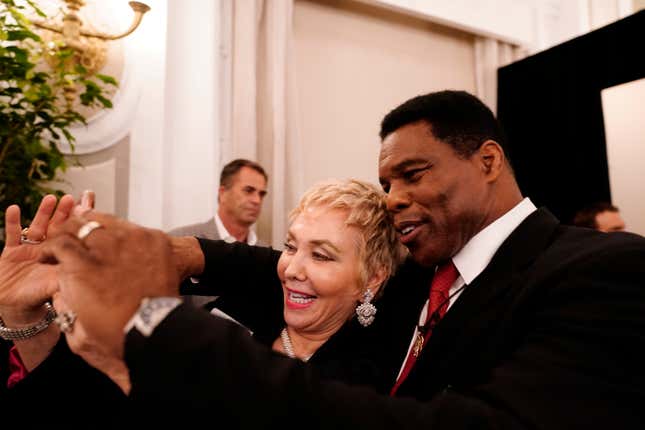
No one will confuse Herschel Walker with Malcolm X, Marcus Garvey or MLK, all civil rights martyrs, one of whom formerly occupied the pulpit now held by Walker’s opponent for a U.S. Senate seat from Georgia. Walker’s political views—to the extent he’s articulated any—are a significant distance from the mean of Black voters.
That’s his prerogative, and Walker is far from the first Black conservative to try riding Trump’s coattails to elected office. He’s not even the first to do so in this election cycle in Georgia, although the same folks who let Vernon Jones crowdsurf on them apparently didn’t turn up at the polls to pull his lever. But outside of his specific (and that word is doing a lot of work here) policy beliefs, what’s Walker’s take on the politics of race itself?
That might seem a peculiar and unfair question, especially since I don’t believe Black political candidates should have to pass racial litmus tests. Black folk can judge how beneficial a candidate’s platform may be without questioning that candidate’s Blackness itself, a thing we proved by watching former Atlanta Mayor Keisha Lance Bottoms commit a war crime against a pan of holiday mac & cheese and still allowing her to keep running America’s Blackest City. (She works in the White House now, BTW).
But Walker, in some of his own campaign speeches and interviews, appears to be walking in the footsteps of a long line of Black conservative candidates by playing racial apologist for the approval of mostly white crowds. Time and again, when he’s been in front of mostly-white crowds in Georgia, or when he’s been on conservative podcasts or talk shows, Walker has campaigned as much on his own relationship to (or distance from) issues of deep importance to Black folks, and in some instances about his own identity as a Black man.
I watched some of Walker’s speeches and interviews dating back to 2020. In his own words, Walker joked to the Lumpkin County GOP about not understanding what Critical Race Theory means and only recently discovering that he was Black, told an audience of white supporters not to worry about being called racist and embraced being other Black people calling him a “coon” because “coon is one of the smartest animals in the jungle,” told Glenn Beck that the Obama presidency and the existence of Black millionaires are evidence that systemic racism doesn’t exist. He went All Lives Matter on an episode of conservative host Charlie Kirk’s show in September 2020.
“How many African-Americans killed by the police rather than African-Americans killed by African-Americans?” he said. “Why are they not talking about that? Do they not care about the African-Americans killed by African-Americans? Is that OK?”
Of all his statements on race, Walker’s sentiments about police brutality and the Black Lives Matter movement come close to being the most egregious for amplifying the Black-on-Black crime trope, as if crime in Black communities should be non-existent before Black folks have the right to demand fair, nonviolent treatment from cops.
But even that takes a backseat to his thoughts on reparations, which he explores in this clip, also from September 2020, where he tells Rudy Guiliani of all people, that Black Lives Matter is an invalid sentiment because Walker has a son of mixed ethnicity, and also argues that the concept of reparations should include the descendants of white soldiers from the civil war.
Not sure whether to sheesh or sigh at that one. But Walker may want to figure something else out. The latest Quinnipiac poll numbers from Georgia, released yesterday, show him trailing incumbent Sen. Raphael Warnock—the guy who currently pastors MLK’s former church in Atlanta—by 10 points, with a 2.5 percentage point margin of error.
It’s hard to say how much, if at all, that has to do with Walker’s stances on race. Georgia’s demographics are changing the political calculus, especially the closer you get to Atlanta and away from the sticks of rural areas. Trump backed candidates—Walker being the exception—were already bowled over in the GOP primaries.
If he keeps this up, come November Walker might have enough time to go back to the University of Georgia and finish up a degree in Black history.

